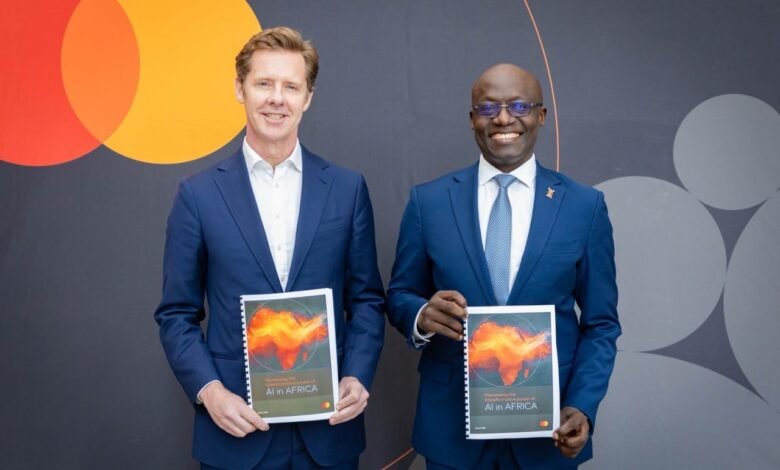
Mastercard has released a new whitepaper arguing that Africa’s AI market could grow from 4.5 billion dollars in 2025 to 16.5 billion dollars by 2030. The paper leans on clear themes for policymakers and investors in the region. Responsible adoption, stronger data infrastructure, and aggressive skills development will determine who benefits. The message is simple. If AI is deployed responsibly and inclusively, it can unlock real outcomes across agriculture, healthcare, education, energy, and finance.
Country snapshots worth watching
South Africa
South Africa is flagged as the current leader. It combines the highest data and infrastructure readiness in Africa with growing research capacity. National plans aim to develop hundreds of AI start-ups and train thousands of professionals by 2030. The Artificial Intelligence Institute of South Africa is positioned as a gateway for students and industry to access training and projects.
Kenya
Kenya is an emerging leader with practical deployments that touch everyday life. Mobile data is used for alternative credit scoring, while tools like maternal health assistants are serving users in local languages. The new National AI Strategy for 2025 to 2030 sets priorities around infrastructure, data governance, talent, ethics, and commercialization. The ambition is to make Kenya a regional hub for research, innovation, and real-world AI products.
Nigeria
Nigeria ranks second by number of AI start-ups and is attracting meaningful venture capital. Use cases span education technology, microfinance and lending assistants, and governance tools that monitor public fund allocation. With a large developer base and strong private sector energy, Nigeria’s growth will hinge on reliable infrastructure and clear policy that gives innovators certainty.
Morocco
Morocco is building momentum across healthcare, energy, agriculture, and finance. Universities and local AI companies are pushing applied research, while national digital plans target billions of dollars in investment and hundreds of thousands of digital jobs by 2030. Progress is real, although issues like data fragmentation, language exclusion, and regulatory inconsistency could widen the digital divide if left unaddressed.
Jobs, skills, and the inclusion test
The whitepaper echoes forecasts that Africa could unlock hundreds of millions of digital jobs by 2030. That upside will only arrive with large scale training, from basic digital literacy to advanced machine learning. It also depends on the quality of data. Without good data practices, AI models embed bias, make poor lending or hiring decisions, and erode trust. The inclusion test is whether countries can create pathways for youth and women to participate, not just consume.
Why this matters for consumers and small businesses
For small firms and everyday users, AI is already showing up in credit scoring, fraud detection, language interfaces, and customer support. In Kenya, for example, alternative data can expand access to formal finance. That promise must be balanced with consumer protection. Clear disclosures, credit literacy, and responsible collections matter. For merchants and start-ups, AI driven fraud prevention and risk scoring can lower losses, speed onboarding, and support cross-border growth.
Policy and infrastructure will decide the curve
Strategies are important, but delivery is what counts. The checklist is consistent across markets. Build data centers and affordable connectivity. Enforce responsible data use and privacy. Fund research and commercialization. Invest in local language technology so tools are actually usable. Create procurement paths that let local companies win public sector AI work. And measure outcomes, not only intentions.
Mastercard’s angle in the wider payments story
This is not just about shiny models. AI is becoming the scoring engine, the fraud shield, and the language layer that will onboard the next wave of users into digital payments. If the payments curve and the AI curve rise together, banks and fintechs will need to keep costs and latency in check while meeting compliance requirements. The players that can deploy trustworthy AI, grounded in strong data rights, will win both users and regulators.
The takeaway
The whitepaper’s optimism tracks with where the continent is heading. But the growth path is narrow. Countries that translate strategies into infrastructure, skills, and trust will gain most of the value. Those that do not will import technology, import risk, and export opportunity. The next five years will separate the planners from the builders.





